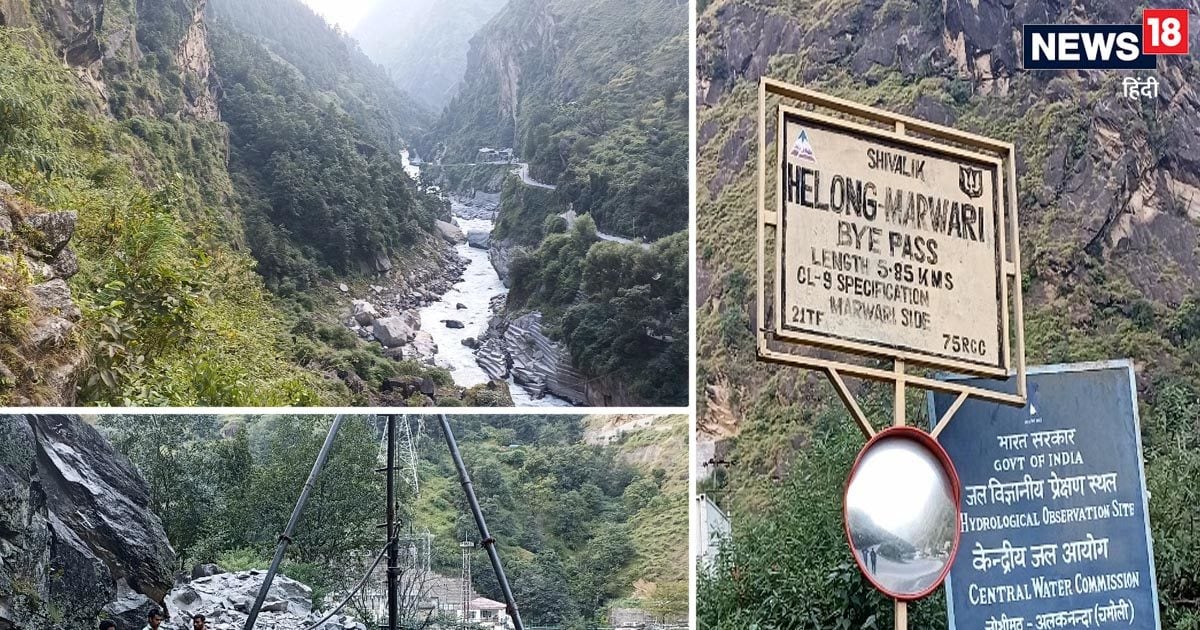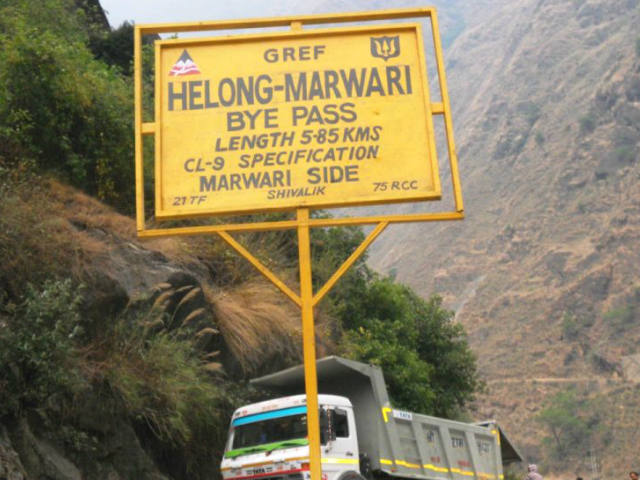The construction of the Helang-Marwari bypass road in Joshimath, Uttarakhand, has recommenced after a temporary halt caused by the appearance of cracks in nearby buildings. The 5km road forms a part of a larger initiative to develop infrastructure for four Hindu shrines located in the Garhwal Himalayas, with the primary objective of reducing the distance to Badrinath by 30km.
However, local residents have voiced their objections to the project, citing concerns about potential damage to structures and the impact on their livelihoods. Recently, the Supreme Court granted permission to the Union government to proceed with the construction of all-weather roads under the initiative, citing national security considerations.
Following approval from the state government, the construction work on the Helang-Marwari bypass road in Joshimath resumed on Monday, according to officials. Colonel Ankur Mahajan, commander of the Border Roads Organisation, confirmed the restart and highlighted the state government’s authorization as the basis for the resumption of the project. Work on the road had been halted due to the occurrence of cracks in numerous buildings in Joshimath, a town that serves as the gateway to the revered Badrinath shrine, drawing millions of pilgrims each year between May and September. As a result, hundreds of residents had to be evacuated, with many still residing in relief camps.
The suspension of work had incurred a loss of approximately ₹10 crore for the Border Roads Organisation, as disclosed by an anonymous official. Permission for the construction of the Helang-Marwari bypass had been granted on a conditional basis, relying on reports from experts at the Indian Institute of Technology Roorkee, the public works department, and the Tehri Hydro Development Corporation, stated Ranjit Kumar Sinha, Secretary of Disaster Management. However, an association advocating for the rights of local residents expressed concerns regarding the project’s resumption.
Atul Sati, convener of the Joshimath Bachao Sangharsh Samiti, expressed his disappointment, stating that the recommencement of the Helang-Marwari bypass construction was regrettable. He argued that the blasting activities during construction would exacerbate the situation in Joshimath, leading to further cracks in the structures. Sati demanded the state government to disclose the fact-finding report by eight government agencies regarding the damages incurred in the town.
Residents of Joshimath are strongly opposed to the construction due to its potential impact on their livelihoods, especially if the pilgrimage route is redirected through the Helang-Marwari bypass. Nain Singh Bhandari, President of the Joshimath Vyapar Mandal, a traders’ association, asserted that if authorities proceed or have already resumed the construction work, they would stage a protest.
Bhandari warned that such a move would trigger mass migration from Joshimath since the project aims to bypass the town, which heavily relies on the Char Dham pilgrimage for its local economy. He criticized the government for introducing projects that could potentially contribute to migration, despite implementing policies to prevent it.
Resumption of Controversial Helang-Marwari Bypass Project Ignites Intense Local Opposition and Safety Concerns

The Helang-Marwari bypass, situated approximately 13 km from Joshimath at its foothills, seeks to significantly reduce the distance to Badrinath by 30 km. It forms part of the central government’s ambitious ₹12,000 crore project to construct roads leading to the Char Dham, a group of four Hindu shrines in the Garhwal Himalayas.
Resumption of Controversial Helang-Marwari Bypass Project Sparks Local Opposition and Safety Concerns
The Supreme Court, on December 14, 2021, granted permission to the Union government to construct all-weather roads with a width of 10m as part of the Char Dham project. The court emphasized the critical national security challenges that have arisen in recent times,
highlighting the necessity for broad strategic feeder roads to facilitate access for the armed forces, particularly along the India-China border.
In conclusion, the resumption of the controversial Helang-Marwari bypass project in Joshimath has reignited local opposition and safety concerns. While the project aims to enhance accessibility to the revered Badrinath shrine and promote regional development, residents fear the adverse consequences it may have on their livelihoods and the structural integrity of their town. The Supreme Court’s decision to permit the construction of all-weather roads underlines the importance of national security but further exacerbates the dispute. As the project progresses, it remains to be seen how the concerns of local residents will be addressed and whether a consensus can be reached to ensure the well-being of the community and the preservation of their economic interests.

